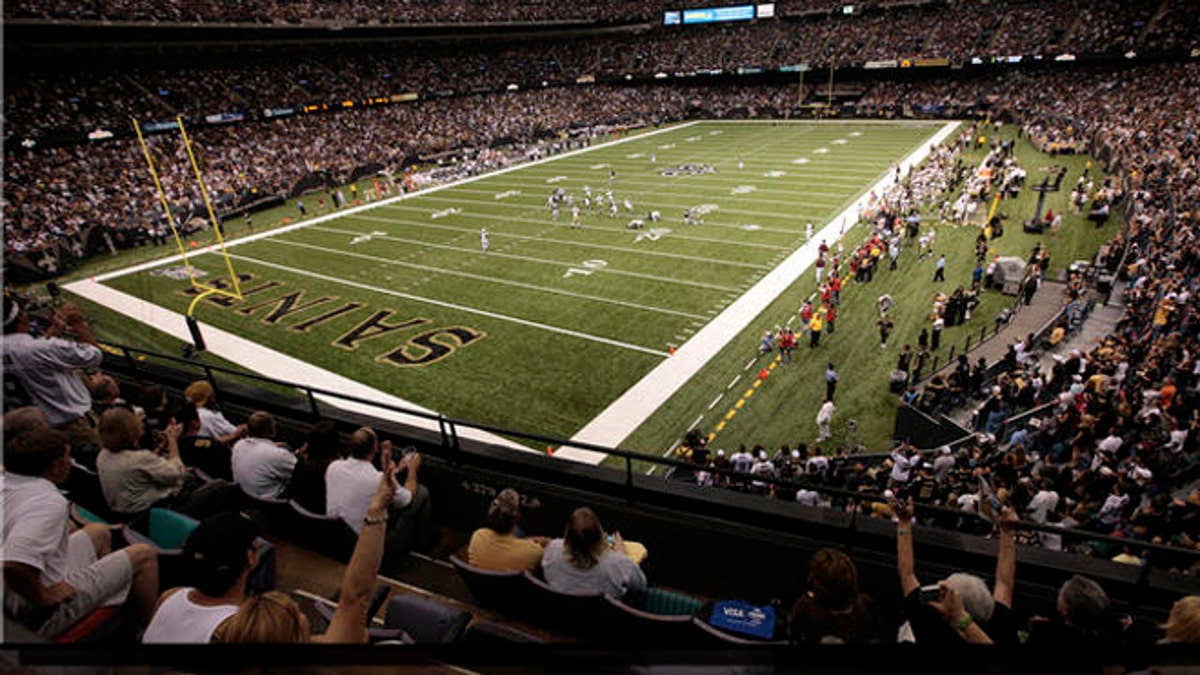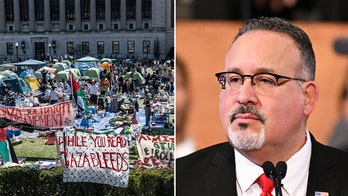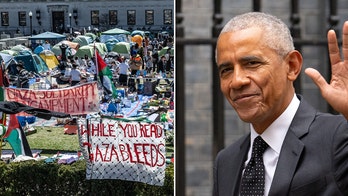
FILE: Aug. 21, 2010: The New Orleans Saints vs. Houston Texans during a preseason NFL game at the Louisiana Superdome in New Orleans, La. (AP)
Arizona Republican Sen. John McCain is taking the field against a long-standing federal regulation that blocks NFL fans from seeing televised, hometown games when their stadium doesn’t sell out.
McCain rolled out his game plan in May, as part of a larger Senate bill to allow pay-TV viewers to pick and choose channels instead of being forced to purchases them in typically more-expensive packages.
The blackout rule, adopted by the National Football League in 1975, essentially blocks local TV stations from broadcasting games in home markets if the stadium is not sold out 72 hours before kickoff and prevents cable and satellite providers from carrying the games.
However, the rule can be traced to a 1961 antitrust law that allows the league to negotiate billions of dollars worth of TV contracts for its teams.
McCain followed his legislation with a letter last month to the Federal Communication Commission that urges the agency to make a final decision on the so-called Sports Blackout Rule, following a year of agency fact gathering “to determine whether the rule remains in the public interest.”
The June 19 letter to acting agency Chairwoman Mignon Clyburn states the fact-finding effort already includes legal arguments, a “white paper” by sports economists and thousands of comments from fans across the country.
It also lays out a range of options -- from keeping or ending the rule to changing its guidelines. And it argues the agency has plenty of authority to act without help from Congress.
“With so much detailed information on the record from such a wide range of stakeholders, it is time for the commission to take the next logical step … ,” reads the letter, cosigned by Connecticut Democratic Sen. Richard Blumenthal.
The blackout rule was modified last year when the NFL allowed each of its 32 teams to decide whether to allow locals broadcasts when their stadiums are at least 85 percent full -- a move to help such struggling franchises as the Tampa Bay Buccaneers and the San Diego Chargers.
McCain’s primary argument is that fans shouldn’t be blocked from viewing games in stadiums that they subsidized through state and local taxes.
“Now, if that stadium is not taxpayer-financed, then that owner can do anything they want to. But if the taxpayers paid for them then, by God, I think the taxpayers ought to be able to see the game whether they sell out the stadium or not," “McCain testified during a May 14 Senate subcommittee hearing, according to the St. Paul Pioneer-Press.
He has strong support from the Washington-based interest group Sports Fans Coalition, which also argues stadiums are built with the help of billions in tax dollars. So either broadcast all of the games or make tickets more affordable.
“HUGE! McCain introduces legislation prohibiting TV blackouts in stadiums built with public money,” the group wrote on its website this spring.
Officials for the hugely profitable league argue the sellout rule helps pays the bills through ticket sales because fans would otherwise watch from home. They also say filling the seats has cut the blackout rate from 56 percent in 1977 to 6 percent last year.
Any proposed, large-scale change would almost certainly face a strong challenge from the league and the National Association of Broadcasters’ powerful and deep-pocketed lobbying efforts.
They collectively spent at least $15.9 million on lobbying last year, according to OpenSecrets.org.
“It’s nothing short of a Washington miracle that we’ve gotten this far,” coalition Chairman David Goodfriend, a former Dish Network executive, told the Pioneer-Press.




